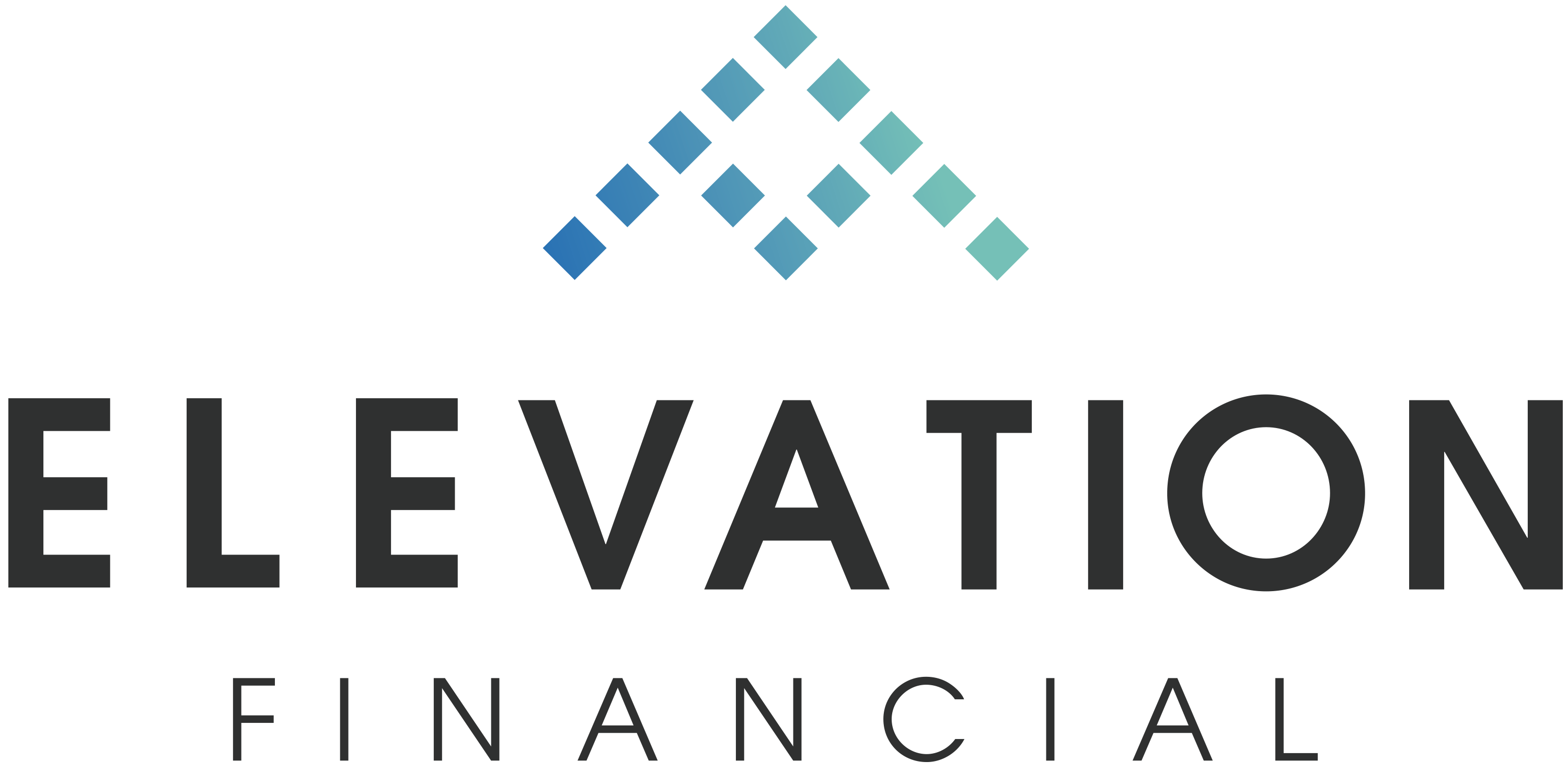
Share this Post
Subscribe

Need help with your money or investments? Book a consultation to learn more about working together.
How Debt Can Sabotage Your Financial Future – Understanding the Negative Effects of Debt
[Prefer to listen? You can find a podcast version of this article here: E221: How Debt Can Sabotage Your Financial Future – Understanding the Negative Effects of Debt]
Debt is a way of life in the U.S. Most people don't think twice about borrowing money when they want something.
While debt may seem like a quick solution to immediate needs or desires, it can actually hinder your long-term financial goals. The consequences of debt are significant and often overlooked, from high interest rates and fees to limiting your ability to invest in your future. It can prevent you from saving for retirement, buying a home, or pursuing your dreams.
One of the most destructive elements I see in my work is debt. It's very common for individuals and families to get trapped in debt cycles and end up hamstrung under the weight of never-ending monthly payments.
Debt is not always bad, but it's often overused. Avoiding debt as much as possible is one of the best ways to avoid financial stress and make faster progress toward your financial goals.
The Negative Effects of Debt on Personal Finances
Debt can significantly impact your personal finances and many different aspects of your life. One of the most immediate consequences of debt is the high interest rates and fees associated with borrowing money.
Whether it's credit card debt, student loans, or car loans, the interest and fees can quickly add up, making it difficult to pay off the principal amount.
Additionally, carrying a large amount of debt can limit your ability to access credit in the future. Lenders consider your debt-to-income ratio when evaluating your creditworthiness.
If you have a high level of debt compared to your income, securing loans or credit cards in the future may be challenging. This can make it difficult to make necessary purchases, such as buying a car or a home.
Moreover, debt can have a cascading effect on your financial well-being. When a significant portion of your income goes towards debt payments, it leaves little room for saving and investing in your future. This can hinder your ability to save for retirement, build an emergency fund, or pursue other financial goals.
Over time, a lack of savings and investments can significantly impact your financial security and limit your options later in life.
How Debt Affects Credit Score and Borrowing Ability
Your credit score is an important factor that lenders consider when determining your borrowing ability. Debt plays a significant role in determining your credit score, and having too much debt can negatively impact it.
When you carry high levels of debt, it increases your credit utilization ratio, which is the amount of available credit you are using. This can lower your credit score and make it more challenging to secure favorable loan terms in the future.
Additionally, missed or late payments on debts can further damage your credit score. Late payments can stay on your credit report for up to seven years, making it difficult to repair your credit history. A lower credit score can result in higher interest rates on loans, limiting your ability to borrow money at favorable terms and potentially costing you thousands of dollars in additional interest over the life of the loan.
Furthermore, having a poor credit score can affect other areas of your life beyond borrowing. Landlords, insurance companies, and even potential employers may consider your credit history when making decisions. A negative credit history can limit your housing options, increase your insurance premiums, and even hinder your chances of getting a job.
The Psychological Impact of Debt on Mental Health
Debt not only affects your financial well-being but can also have a significant impact on your mental health. The stress and anxiety that come with carrying a large amount of debt can be overwhelming. Constantly worrying about making payments and feeling trapped in a cycle of debt can take a toll on your mental health.
The burden of debt can lead to feelings of shame, guilt, and self-blame. It can also cause strained relationships with loved ones as financial stress often spills over into other areas of life.
Being constantly preoccupied with debt can also affect your ability to focus on work or enjoy activities, leading to decreased productivity and a diminished quality of life.
Furthermore, the psychological impact of debt can lead to unhealthy coping mechanisms, such as overspending or excessive risk-taking.
Some individuals may temporarily turn to credit cards or loans to mask their financial struggles, further exacerbating their debt problems. It becomes a vicious cycle that is difficult to break without addressing the underlying psychological factors or money scripts behind it.
Debt's Impact on Long-term Financial Goals and Savings
One of the most significant ways in which debt can sabotage your financial future is by hindering your ability to achieve long-term financial goals.
When a substantial portion of your income goes towards debt payments, it leaves little room for saving and investing in your future. This can have severe implications for your retirement plans, homeownership dreams, and other financial priorities.
Saving for retirement is important to your financial security. However, when you are burdened with debt, setting aside money for retirement becomes challenging. The interest and fees you pay on debt deplete potential retirement savings, leaving you at a significant disadvantage when it comes to building wealth for the future.
Likewise, debt can make it difficult to achieve the dream of homeownership. Mortgage lenders consider your debt-to-income ratio when evaluating your eligibility for a home loan. If a large portion of your income is already allocated towards debt payments, qualifying for a mortgage or paying the monthly payments can be challenging. This can delay or even prevent you from owning your own home, limiting your ability to build equity and wealth.
Furthermore, debt can impede your ability to pursue other financial goals and opportunities. Whether it's starting a business, furthering your education, or traveling the world, having a significant amount of debt can limit your options. The financial burden of debt can prevent you from taking calculated risks or acting on opportunities that could potentially lead to financial growth and success.
The Cycle of Debt and Its Potential for Financial Ruin
Another detrimental effect of debt is the cycle it can create, trapping individuals in a never-ending cycle of borrowing and repayment. When faced with mounting debt, some people may resort to taking out additional loans or using credit cards to cover expenses. This can lead to a dangerous cycle of borrowing to pay off existing debts, resulting in more debt and higher interest payments.
The cycle of debt can quickly spiral out of control, leading to financial ruin. As interest and fees continue to accrue, making the minimum payments necessary to keep up with the debt becomes increasingly difficult. In severe cases, this can result in missed payments, defaulting on loans, and even bankruptcy.
Furthermore, the cycle of debt can have long-lasting consequences on your financial future. Bankruptcy, for example, can stay on your credit report for up to ten years, making it difficult to access credit or secure favorable loan terms during that time. The negative impact of the cycle of debt can take years to recover from, hindering your ability to rebuild your financial life and achieve future goals.
Strategies for Managing and Reducing Debt
While the negative effects of debt can seem overwhelming, there are strategies you can implement to manage and reduce your debt load. The first step is to create a realistic budget that allows you to track your income and expenses. A budget will help you identify areas where you can cut back on spending and allocate more money towards debt repayment.
Next, consider implementing a debt repayment strategy, such as the snowball or avalanche method. The snowball method involves paying off the smallest debt first, while the avalanche method focuses on paying off debts with the highest interest rates first. Choose the method that aligns with your personality and preferences and helps you stay motivated during the debt repayment process.
Seeking Professional Help for Debt Management
If you find yourself overwhelmed with debt and unsure of how to proceed, seeking professional help for debt management may be beneficial. Credit counseling agencies and debt consolidation companies can provide valuable guidance and support in navigating the complexities of debt repayment.
Credit counseling agencies can work with you to create a personalized debt management plan. They can negotiate with creditors on your behalf to potentially lower interest rates, reduce fees, and consolidate your debt into a single monthly payment. This can make debt repayment more manageable and help you regain control of your financial situation.
However, be sure to research and choose reputable companies to avoid falling into scams or predatory lending practices. The most reputable debt management organizations are typically non-profits.
Remember, seeking professional help is not a sign of failure but rather a proactive step toward regaining control of your financial future. By working with professionals who specialize in debt management, you can receive the guidance and support you need to overcome your debt.
Shifting Your Perspective to Avoid Debt
Debt can cause so many problems and can be so destructive. It's very easy to get into debt but it's exponentially harder to get out of debt.
One of the best ways to prevent debt from being a toxic influence on your finances is to shift your perspective.
We're taught (by media and advertising) in the U.S. to accept debt as a way of life. However, we can choose to be much more resistant to debt. By avoiding debt as much as possible, we can keep from getting sucked into the cycle of never-ending payments.
Some debt is generally unavoidable, such as a mortgage for buying a home or student loans for specialized degrees. Debt can sometimes make sense when buying a reasonable vehicle.
But for most things, adopting a "no debt" stance can help you lower stress, expand your options, and help you get to your goals faster.
